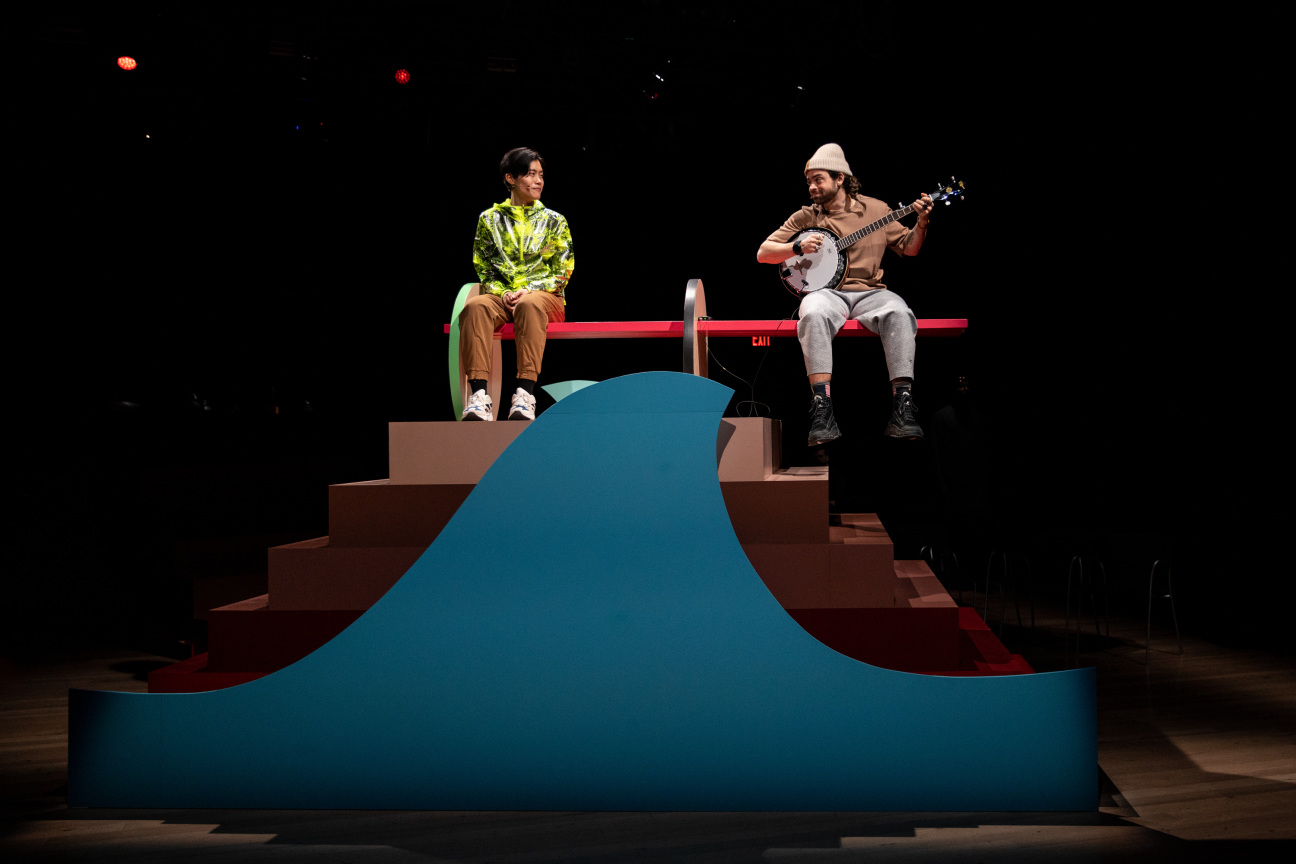
Every Ocean Hughes follows rivers. The interdisciplinary artist, whose exhibition “Alive Side” at the Whitney Museum of American Art closes on April 2, began her formal deep dive into these bodies of water with "The Piers Untitled," 2009-2023. The delicately haunting photographic series takes the piers that run along the west side of Manhattan as its muse. That same landscape—a source of inspiration for artists such as David Wojnarowicz, Gordon Matta-Clark, and David Hammons—was on view through the windows of the Whitney’s Susan and John Hess Family Theater this past weekend for the premiere of Hughes’s latest performance piece River.
The new work, the third in the artist’s series inspired by death care, grew from a need for stories about the space and time between this life and the next. River breathes rhythm into that desire. The performance opens with four characters, played by Lindsay Rico, Geo Wyex, Aarron Ricks, and Timothy Johnson, sitting atop spare, colorful structures—stairs with wave outlines and a bathtub covered with plexiglass. A banjo, played by musician Nora Brown, punctuates the scene. Then a pregnant hush before Wyex announces, in the sardonically singsong tone he will keep throughout the piece, “Everyone thinks if you go, you go up.” The other performers chime in, “But I’m not so sure about that. I went down. Down.”
What is down? What does it feel like? How do you get there? How do you get back? These questions are at the center of River, an achingly immeasurable meditation on the underworld, the weight of being alive while (chosen) family members move on, and unearthing kinship when you least expect it. The audience follows the performers through a succession of confessions, conversations, and choral moments. They pace, they tumble, they count pennies, they watch the sun set over the piers, happening in real time. Mostly, they hold space for the threshold that death inevitably is.
When I ask Every Ocean Hughes last Friday what she hopes the audience will carry away from the performance, she pauses before continuing, “I would like people to feel this kind of sensual, informative darkness … And to see what’s possible there, what people have been looking away from. What happens instead if we stay with it?” River is just one attempt at reaching the under, as Hughes puts it, but it will leave its trace as a manual for considering life’s shadow.

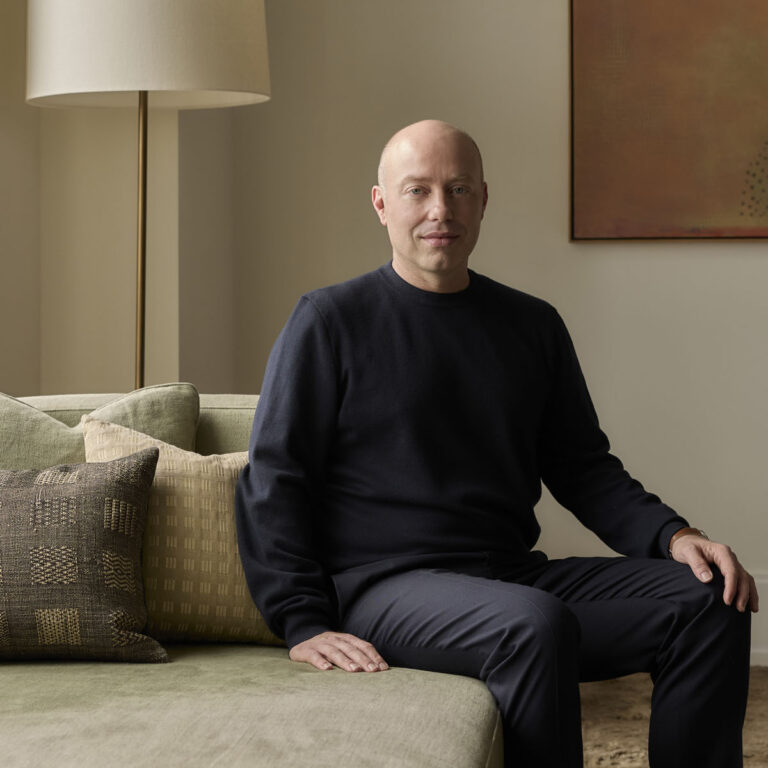
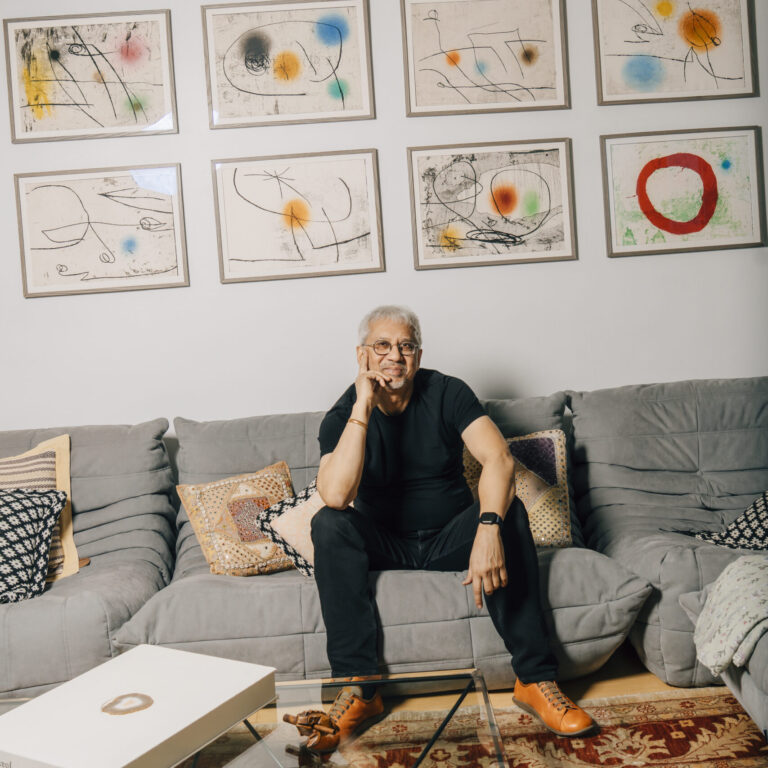
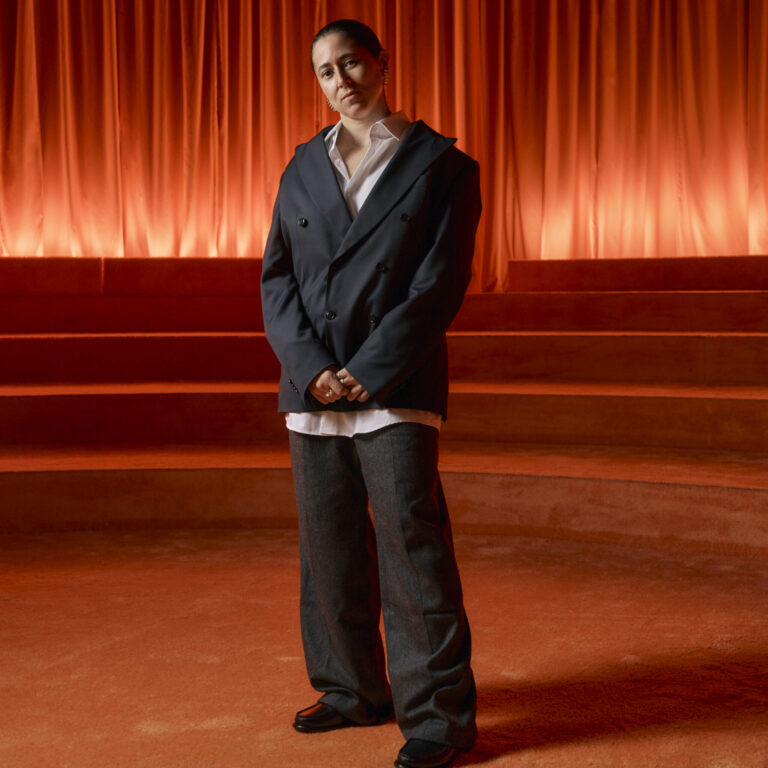

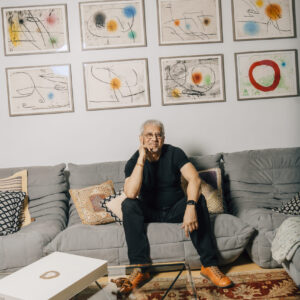
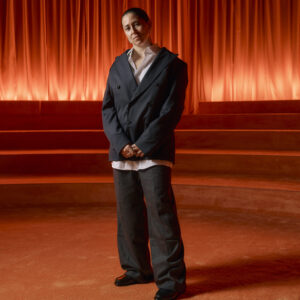



 in your life?
in your life?

